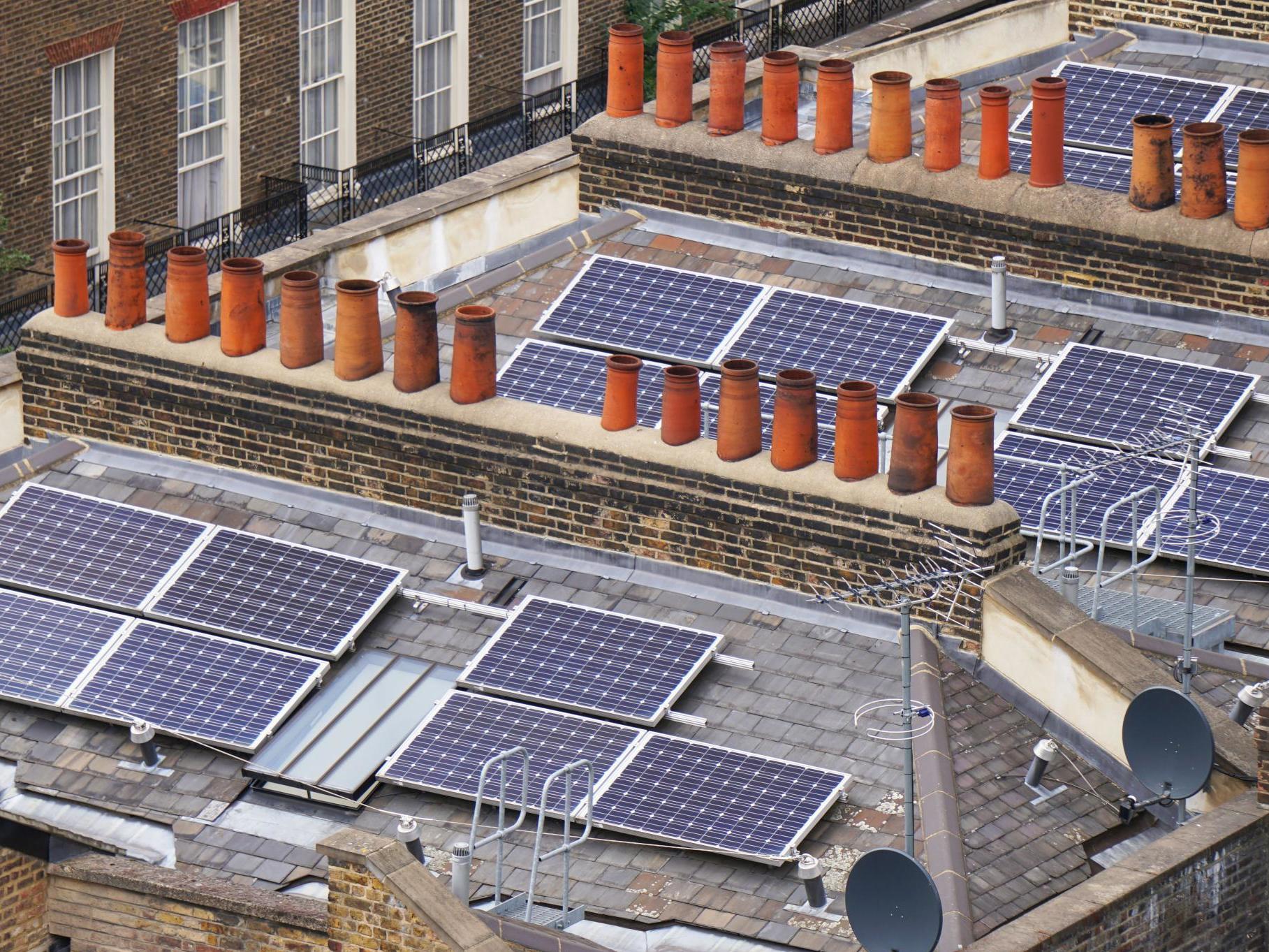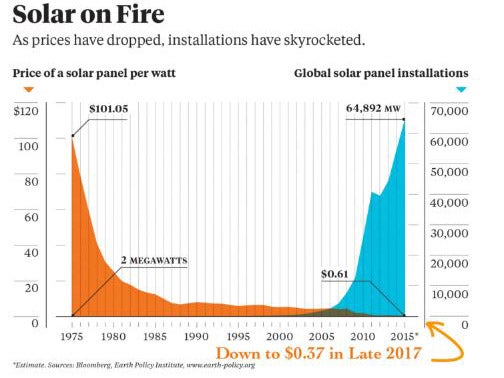The UK can’t fight the climate emergency when the Tories are entirely opposed to renewables like solar
The party’s decision to increase tax on domestic solar power shows that its head is still firmly in the sand

Anyone who lives in the UK would suspect that solar power could never be the complete solution for its energy demand. Overcast days in the depths of winter would produce meagre amounts of electricity even if the nation was covered with solar panels. But that does not mean solar has not got an important place in the transformation of the UK to a zero carbon nation. This includes solar panels installed on homes that can power much of a household’s energy requirements for large parts of the year.
So why does the UK government appear to be intent on frustrating the deployment of solar power?
Last week, the UK parliament declared a climate emergency. This week the UK government announced it will increase VAT on domestic solar installations from 5 per cent to 20 per cent. This comes after it scrapped the feed in tariffs that allowed households to produce electricity via their solar panels and sell it to the National Grid. The VAT increase decision comes with the justification that the UK government is merely conforming to a 2015 EU ruling. The irony isn’t lost that the energy policy of a government determined to ensure “Brexit means Brexit” is being determined by at best ambiguous directives from Europe.
The real reason for this tax hike is that domestic solar has proved too popular. The cost of solar panels have plummeted and people increasingly see them as desirable improvements to their homes.

The accelerating update of domestic solar threatens to disrupt the UK’s still largely centralised energy grid. It also butts up against seemingly ideological opposition to renewable energy in the current Conservative Party. The decision to increase tax on domestic solar power needs to be considered alongside its support of fracking for gas, billions of pounds of subsidies to continue to pump fossil fuels out of the North Sea, and resistance to onshore wind turbines.
The UK has some of the best potential for generating electricity with wind power in the world. Wind speeds are strongest over the sea and being an island many of our major urban areas are historical ports close to the coast. While the UK is pioneering the development of very large offshore wind farms, its potential to generate much cheaper electricity with land-based turbines has been severely restrained by the 2015 decision to have large wind power installations assessed in the same way as smaller developments. That meant more power for Local Planning Authorities rather than national agencies. The net result was an increase in delays in planning approval with thousands of megawatts in capacity held up for years.
The potential of wind and solar will only be fully realised by rapid innovation in the UK’s infrastructure. This includes the use of electric vehicles to serve as energy stores during peak generation time; the ability to exchange electricity between households in a street; high efficiency home batteries that can release energy when needed; smart devices that sense the state of energy demand and charge or operate accordingly; and pricing algorithms that adjust the price of electricity based on demand, availability and estimated carbon emissions.
Along with these new technologies comes perhaps even more radical ideas about who owns and manages the means of energy production. In the UK, six international corporations generate nearly 75 per cent of the UK’s electricity. Very large power plants produce energy that is sent out to the National Grid. An example of an alternative model is the Westmill Solar Park in Oxfordshire, which is the largest community-owned photovoltaic power station in the world. This sits next to the Westmill Wind Farm, again another cooperative energy organisation. These facilities are owned by the surrounding residents. As well as generating low carbon electricity, they serve as beacons to what is possible when communities are given the opportunity to manage their own energy supply. People really are willing to invest their time, energy, and money into building the solutions we need for a sustainable future.
Some will point out that increasing tax rates on solar panels and ending feed in tariff rates only affects those who could afford to buy them in the first place. This is true. It’s also true that huge energy savings are available by properly insulating homes which could also bring many out of fuel poverty. Doing one doesn’t mean we don’t do the other.
The UK lead the world in 2008 with the Climate Change Act and it has achieved significant reductions in carbon emissions by largely switching from coal to gas fired electricity generation. But it is far behind what it needs to do to ensure it plays its part in helping us avoid climate breakdown.
We have everything we need to ensure declarations of climate emergency translate into effective action. Unfortunately, the UK government continues to demonstrate it would prefer to stick its head in the ground in search of more fossil fuels, than open it eyes to the potential of the sun and other renewable sources of energy.
Join our commenting forum
Join thought-provoking conversations, follow other Independent readers and see their replies
Comments
Bookmark popover
Removed from bookmarks